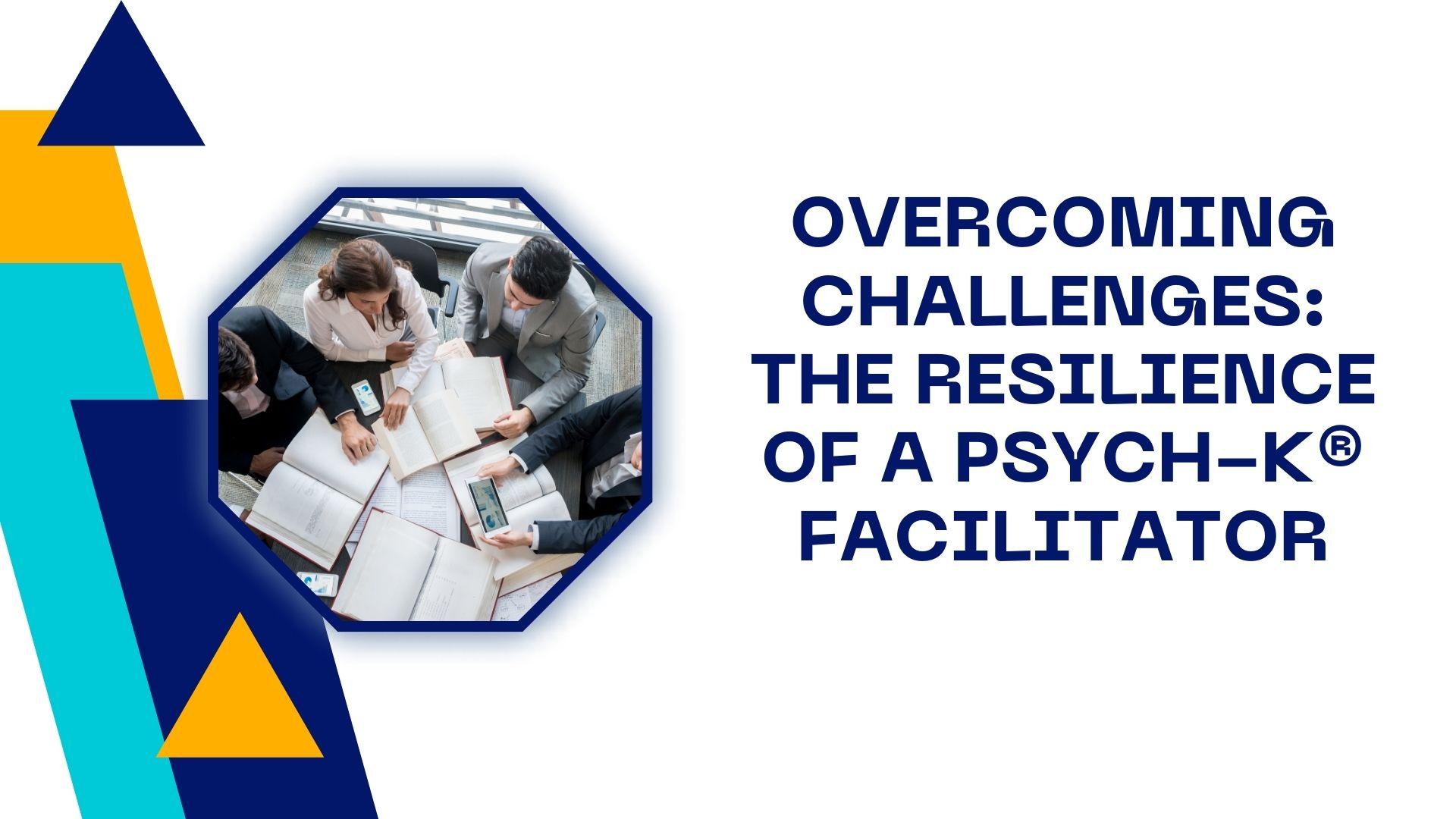Becoming a PSYCH-K® facilitator is a journey that requires a unique blend of personal growth, professional development, and resilience. This role is not just about facilitating change in others, but also about navigating personal challenges and setbacks along the way. The resilience of a PSYCH-K® facilitator is built through a combination of their experiences, skills, and commitment to the principles of PSYCH-K®. In this article, we explore the challenges faced by PSYCH-K® facilitators and how they overcome them to thrive in their roles.
The Journey to Becoming a PSYCH-K® Facilitator
For many, the decision to become a PSYCH-K® facilitator is born from a desire for personal transformation. This path is not merely about acquiring new skills; it’s about a profound shift in mindset and life perspective. The journey typically begins with attending a PSYCH-K® workshop, where participants are introduced to the basic concepts of belief change and the mind-body connection. Here, they learn the techniques and tools needed to assist others in transforming their limiting beliefs into empowering ones.
However, this journey isn’t without its challenges. One of the first obstacles many facilitators face is personal skepticism. Adopting the PSYCH-K® methodology involves letting go of traditional thinking patterns and embracing new ways of understanding and interacting with the world. This shift can be uncomfortable and challenging, especially for those who have deeply ingrained beliefs about how the world works and what’s possible.
Navigating Personal Resistance
Personal resistance is one of the most significant challenges for new facilitators. It often manifests as self-doubt—questions like “Am I really capable of helping others change their beliefs?” or “Can I really create lasting transformations in my clients?” These doubts can be particularly daunting when facilitators are faced with clients’ deeply rooted issues that seem insurmountable.
Overcoming these challenges requires a commitment to personal growth and a deep belief in the power of the PSYCH-K® process. Resilient facilitators find ways to work through their doubts by engaging in regular self-reflection, seeking mentorship from experienced facilitators, and participating in continuing education. They understand that belief change is not just about their clients but also about their own evolving mindset.
Building Resilience Through Practice
The resilience of a PSYCH-K® facilitator is also cultivated through practical experience. Working with clients on a daily basis exposes facilitators to a wide range of challenges—from clients who resist the process to those who have unrealistic expectations. These experiences can be emotionally draining, but they are also opportunities for growth. Facilitators learn to set clear boundaries, manage their energy, and maintain a positive mindset, which are all essential for effective facilitation.
Moreover, the process of facilitating PSYCH-K® sessions itself can be a challenge. Facilitators must remain neutral, non-judgmental, and empathetic to help clients uncover and release limiting beliefs. This requires a high level of emotional intelligence and the ability to stay grounded, even in the face of strong emotional reactions from clients. Building this skill set takes time, practice, and often, personal development work.
Turning Challenges into Strengths
Resilience for a PSYCH-K® facilitator also comes from learning to view challenges as opportunities. Each setback or difficult client interaction is a chance for growth. Facilitators who embrace this mindset develop a stronger foundation and become more adept at navigating future challenges. They learn to adapt their approaches, refine their techniques, and continuously evolve their skills. This adaptability is crucial in maintaining long-term success and satisfaction in their role.
The community aspect of being a PSYCH-K® facilitator also plays a significant role in building resilience. Support from other facilitators can be invaluable, providing a sense of camaraderie, shared experiences, and encouragement. Regular workshops, training sessions, and online forums offer opportunities for connection, learning, and growth. This sense of community fosters resilience by offering a support network, practical advice, and shared strategies for overcoming challenges.
The Rewards of Resilience
The resilience developed through overcoming challenges as a PSYCH-K® facilitator leads to profound personal growth. Facilitators report increased self-awareness, a deeper understanding of human behavior, and improved interpersonal skills. They become better equipped to handle stress, manage emotions, and maintain a balanced life. These qualities not only enhance their professional lives but also their personal relationships and overall well-being.
Moreover, the ability to help others transform their beliefs and lives is incredibly rewarding. Facilitators witness firsthand the impact of PSYCH-K® on clients—how it helps them overcome fears, achieve goals, and unlock their full potential. This positive impact provides a strong motivation to continue, even in the face of challenges.
Conclusion
The resilience of a PSYCH-K® facilitator is a testament to their dedication to personal and professional growth. Overcoming challenges is not a sign of weakness but a strength that allows facilitators to thrive in their role. They learn to embrace uncertainty, adapt to change, and maintain a positive attitude in the face of adversity. The journey is not always easy, but for those committed to the PSYCH-K® process, the rewards are profound—both for themselves and the clients they serve.



